Matt Rees's Blog - Posts Tagged "mozart"
Researching the novel
Novelists aren’t journalists. Research for a novel isn’t the same as researching a journalistic article.
I’d have thought that was too obvious to need stating. But then I became a published novelist, and I realized that people thought the two things were rather the same.
I was a journalist for almost 20 years before my first novel was published. THE COLLABORATOR OF BETHLEHEM is a crime novel set in Bethlehem during the intifada, and I’d spent over a decade covering the Palestinians by the time the book came out in 2007. No need for new research there.
Much of the next two books, A GRAVE IN GAZA and THE SAMARITAN’S SECRET, were based on stories I had covered as a journalist. Though I returned to the places many times before I wrote the books, these visits were mainly to record details of place, smell and weather. It wasn’t to interview people, as a journalist must.
That’s because I wanted the books to have their basis less in the political moment at which I had covered those stories, and more in the emotional response I had observed in other people and in myself as those events unfolded.
Things were different when I came to research my new novel, THE FOURTH ASSASSIN, which will be published in February.
THE FOURTH ASSASSIN is set in Brooklyn, New York, where there’s a growing community of Palestinian immigrants. I lived in New York in the 1990s, when I covered Wall Street for some US newspapers and magazines. I was a Greenwich Village type, with forays to Soho, Tribeca and the Lower East Side. I used to go months without leaving Manhattan. Brooklyn wasn’t exactly one of my regular haunts. So last year I went out to Bay Ridge, where most Palestinians live, and met a couple of people. I toured the neighborhood with a kid in his late teens and learned about the gang culture.
I specifically didn’t want to do what a journalist does. I didn’t want to sit down and pull out my notepad, though I can see why novelists may feel the urge to do so. I wanted to walk the streets as my detective Omar Yussef would – a little alienated, not knowing quite where I was, out of place. I know Omar Yussef – the real man and his fictional manifestation – well enough to make my way through Bay Ridge as though he were with me.
During my visit to New York, I stopped in at the home of some friends who had been correspondents for a US newspaper in Jerusalem. One of them said: “So who’re you talking to in Brooklyn?”
It was a journalist’s question—who you’re talking to will determine the depth of information you garner and therefore will signal the worth of your article. I felt a stab of defensiveness. It was as though she had accused me of not doing my job. Of course, I wasn’t doing my job, because I no longer had a job. Journalism was my job. Now I’m a novelist. Most definitely not a job.
But the twinge I felt at her query alerted me to the difference in my new “métier” (let’s see how many ways I can find to avoid referring to my writing as a “job”).
I recently finished writing the manuscript of a novel about Mozart. When I began it, various friends suggested I talk to “experts” on the subject. I didn’t. Because they weren’t experts on what I was writing about. They were experts on the known facts about Mozart. Well, I can read as well as they can.
What I needed were musicians, who could tell me how they get inside a Mozart piece, how they plot out their performance emotionally. I needed friends in Vienna who could take me to little-known places that would give me the atmosphere of the eighteenth century in that city. I needed to learn to play the piano, to feel the extent of Mozart’s genius and to be moved with (rather than just “by”) his music.
A journalist collates the impressions and assertions of others. As a novelist, I’m focused on my own impressions. If there’s anything to be asserted in my books, it ought not to be a digest of someone else’s thoughts.
I’m starting this process again. The novel I’m researching now will be set in Italy in 1600 and will be about an artist. I’m off to Rome in a few weeks, and already friends are asking me which experts I’m intending to interview. I may talk to some art historians, but they won’t be the most important factor in my research. That’ll come when I put some oil on canvas.
I don’t expect to show anyone the results of my daubings (just as I don’t want anyone except my two-year-old son to listen to my rotten piano playing). But the sensation of working with paint is going to be much more important than hearing someone’s assessment of how it was for someone else long dead to muck about with oils.
(I posted this earlier today on the International Crime Authors Reality Check blog, which I write along with Christopher G. Moore, Barbara Nadel and Colin Cotterill. Check it out.)
I’d have thought that was too obvious to need stating. But then I became a published novelist, and I realized that people thought the two things were rather the same.
I was a journalist for almost 20 years before my first novel was published. THE COLLABORATOR OF BETHLEHEM is a crime novel set in Bethlehem during the intifada, and I’d spent over a decade covering the Palestinians by the time the book came out in 2007. No need for new research there.
Much of the next two books, A GRAVE IN GAZA and THE SAMARITAN’S SECRET, were based on stories I had covered as a journalist. Though I returned to the places many times before I wrote the books, these visits were mainly to record details of place, smell and weather. It wasn’t to interview people, as a journalist must.
That’s because I wanted the books to have their basis less in the political moment at which I had covered those stories, and more in the emotional response I had observed in other people and in myself as those events unfolded.
Things were different when I came to research my new novel, THE FOURTH ASSASSIN, which will be published in February.
THE FOURTH ASSASSIN is set in Brooklyn, New York, where there’s a growing community of Palestinian immigrants. I lived in New York in the 1990s, when I covered Wall Street for some US newspapers and magazines. I was a Greenwich Village type, with forays to Soho, Tribeca and the Lower East Side. I used to go months without leaving Manhattan. Brooklyn wasn’t exactly one of my regular haunts. So last year I went out to Bay Ridge, where most Palestinians live, and met a couple of people. I toured the neighborhood with a kid in his late teens and learned about the gang culture.
I specifically didn’t want to do what a journalist does. I didn’t want to sit down and pull out my notepad, though I can see why novelists may feel the urge to do so. I wanted to walk the streets as my detective Omar Yussef would – a little alienated, not knowing quite where I was, out of place. I know Omar Yussef – the real man and his fictional manifestation – well enough to make my way through Bay Ridge as though he were with me.
During my visit to New York, I stopped in at the home of some friends who had been correspondents for a US newspaper in Jerusalem. One of them said: “So who’re you talking to in Brooklyn?”
It was a journalist’s question—who you’re talking to will determine the depth of information you garner and therefore will signal the worth of your article. I felt a stab of defensiveness. It was as though she had accused me of not doing my job. Of course, I wasn’t doing my job, because I no longer had a job. Journalism was my job. Now I’m a novelist. Most definitely not a job.
But the twinge I felt at her query alerted me to the difference in my new “métier” (let’s see how many ways I can find to avoid referring to my writing as a “job”).
I recently finished writing the manuscript of a novel about Mozart. When I began it, various friends suggested I talk to “experts” on the subject. I didn’t. Because they weren’t experts on what I was writing about. They were experts on the known facts about Mozart. Well, I can read as well as they can.
What I needed were musicians, who could tell me how they get inside a Mozart piece, how they plot out their performance emotionally. I needed friends in Vienna who could take me to little-known places that would give me the atmosphere of the eighteenth century in that city. I needed to learn to play the piano, to feel the extent of Mozart’s genius and to be moved with (rather than just “by”) his music.
A journalist collates the impressions and assertions of others. As a novelist, I’m focused on my own impressions. If there’s anything to be asserted in my books, it ought not to be a digest of someone else’s thoughts.
I’m starting this process again. The novel I’m researching now will be set in Italy in 1600 and will be about an artist. I’m off to Rome in a few weeks, and already friends are asking me which experts I’m intending to interview. I may talk to some art historians, but they won’t be the most important factor in my research. That’ll come when I put some oil on canvas.
I don’t expect to show anyone the results of my daubings (just as I don’t want anyone except my two-year-old son to listen to my rotten piano playing). But the sensation of working with paint is going to be much more important than hearing someone’s assessment of how it was for someone else long dead to muck about with oils.
(I posted this earlier today on the International Crime Authors Reality Check blog, which I write along with Christopher G. Moore, Barbara Nadel and Colin Cotterill. Check it out.)
Where BBC radio producers get their ideas
I was invited to appear on a BBC World Service programme last weekend. If you’ve ever wondered how radio producers feed their on-air people interesting information about their guests (thus enabling them to create a breezy “chemistry” and to relate the day’s news stories to the knowledge or experience of the guest), here’s the questionnaire sent to me for The World Today by Affan Chowdhry, along with my responses. If you try to imagine what your answers would be to some of the questions, I think you’ll see the unorthodox angles the producer is looking to wheedle out of you.
NAME
Matt Rees
PREFERRED TITLE
Author of a series of crime novels about a Palestinian detective.
WHAT NEWS-RELATED EXPERTISE DO THEY HAVE?
I’ve covered the Middle East as a journalist since 1996 for Time Magazine, Newsweek, The Scotsman, and some American news sites. I’m the author of a book of nonfiction about Israel and Palestine, three novels about Palestine, and a fourth which is coming out in February.
GEOGRAPHICAL BIOGRAPHY?
Grew up in Wales. I worked in Washington and New York from 1989 to 1996, mainly covering Wall Street. Since then I’ve lived in Jerusalem and have worked in Jordan, Lebanon, Syria, Egypt. My books have been translated into 22 languages and I’ve visited a lot of those places to promote the books.
COUNTRIES VISITED IN 2009?
Denmark, Norway. Germany. France. Switzerland. (Israel, West Bank). Austria. Italy. Malta.
HIGHLIGHTS FROM LAST FEW MONTHS OF THEIR LIFE - PERSONAL OR
PROFESSIONAL?
I took my first holiday for nearly two years—a trip to Swiss wine country (yes, that’s right “Swiss” wine country, on the banks of Lake Geneva), with my wife and son. I completed the manuscript for my fifth novel, which is a historical mystery set in Vienna in 1791.
PLANS FOR THE NEXT MONTH?
In December I’ll be going to Rome, Naples and Malta to research my next novel, a historical novel set in 1610.
WHAT RECENT STORIES IN THE NEWS HAVE HAD DIRECT RELEVANCE TO THEIR LIFE/WORK?
Well, anything to do with Israel and the Palestinians. Although, frankly, nothing much’s really happening on that front…
WHAT ISSUES ARE PEOPLE TALKING ABOUT WHERE YOU LIVE THAT DON'T MAKE THE INTERNATIONAL HEADLINES?
Tarantino’s film, “Inglourious Basterds” is creating quite a stir in Israel over its portrayal of Jewish revenge against Nazis. Many Israelis cheer during the scenes of violent death for the Nazis, while some are disturbed that anyone should be so turned on by killing—even if the victims are the persecutors of Jews. I believe the film is actually quite “Israeli,” in that the Israeli establishment has long been ashamed of the way so many Jews went to their deaths without a fight and, in turn, treated them poorly when the survivors came to Israel.
BRIEF ENCOUNTER – (an interesting, funny or just plain weird anecdote
about meeting someone famous.)
I was the last journalist to interview Salman Rushdie before Khomeini’s fatwa. Unfortunately I was drunk. It was after an awards dinner. He looked rather disgusted with me, and considering that he looks disgusted even when he’s not, you can imagine that it was rather a withering glare he gave me as I tried to string a few sentences together. To be fair, I was only 22 and it was the first time I’d been to an event where all the booze was free.
QUIET ACHIEVER – (one person they have met who does important work with
little recognition)
My friend Caryn Greene immigrated to Israel from Texas and set up Crossroads, a home for at-risk youth who are the children of English-speaking immigrants. They often fall through the cracks of the Hebrew social services. With very little funding, Caryn has run this service for a decade. Most of my son’s babysitters turned out to be kids who’d gone through her doors and came out no longer rebellious but really rather lovely.
SECRET PASSIONS/HIDDEN TALENTS?
I play bass guitar in Jerusalem’s (justifiably) least well-known garage rock band, Dolly Weinstein.
FAVOURITE PIECE OF RADIO EVER?
The “Mornington Crescent” game on “I’m Sorry I Haven’t a Clue”.
NEW FACT THEY'VE LEARNED THIS THE WEEK (important or trivial, but an interesting "i-never-knew-that" factoid)
I met the man who recently came to live in Israel and whose mother introduced the “pooper-scooper” law in New York (forcing dog owners to pick up their dogs’ poop). I suggested he get a similar law going in Jerusalem, because the city’s streets and parks are fuller of canine poop than a grass verge on a 1970s British pavement.
STORY OF THE WEEK (something that's intrigued them or has not received as much coverage as it should have done in their eyes)
Israeli Prime Minister Netanyahu almost falling in the water when he went to inspect an Israeli navy boat which recently intercepted a big Hizballah arms shipment.
CRYSTAL BALL (what will they be watching in their field of expertise over the next
six months/year?)
Will Mahmoud Abbas really quit as Palestinian president? He says he will. I say, No.
NAME
Matt Rees
PREFERRED TITLE
Author of a series of crime novels about a Palestinian detective.
WHAT NEWS-RELATED EXPERTISE DO THEY HAVE?
I’ve covered the Middle East as a journalist since 1996 for Time Magazine, Newsweek, The Scotsman, and some American news sites. I’m the author of a book of nonfiction about Israel and Palestine, three novels about Palestine, and a fourth which is coming out in February.
GEOGRAPHICAL BIOGRAPHY?
Grew up in Wales. I worked in Washington and New York from 1989 to 1996, mainly covering Wall Street. Since then I’ve lived in Jerusalem and have worked in Jordan, Lebanon, Syria, Egypt. My books have been translated into 22 languages and I’ve visited a lot of those places to promote the books.
COUNTRIES VISITED IN 2009?
Denmark, Norway. Germany. France. Switzerland. (Israel, West Bank). Austria. Italy. Malta.
HIGHLIGHTS FROM LAST FEW MONTHS OF THEIR LIFE - PERSONAL OR
PROFESSIONAL?
I took my first holiday for nearly two years—a trip to Swiss wine country (yes, that’s right “Swiss” wine country, on the banks of Lake Geneva), with my wife and son. I completed the manuscript for my fifth novel, which is a historical mystery set in Vienna in 1791.
PLANS FOR THE NEXT MONTH?
In December I’ll be going to Rome, Naples and Malta to research my next novel, a historical novel set in 1610.
WHAT RECENT STORIES IN THE NEWS HAVE HAD DIRECT RELEVANCE TO THEIR LIFE/WORK?
Well, anything to do with Israel and the Palestinians. Although, frankly, nothing much’s really happening on that front…
WHAT ISSUES ARE PEOPLE TALKING ABOUT WHERE YOU LIVE THAT DON'T MAKE THE INTERNATIONAL HEADLINES?
Tarantino’s film, “Inglourious Basterds” is creating quite a stir in Israel over its portrayal of Jewish revenge against Nazis. Many Israelis cheer during the scenes of violent death for the Nazis, while some are disturbed that anyone should be so turned on by killing—even if the victims are the persecutors of Jews. I believe the film is actually quite “Israeli,” in that the Israeli establishment has long been ashamed of the way so many Jews went to their deaths without a fight and, in turn, treated them poorly when the survivors came to Israel.
BRIEF ENCOUNTER – (an interesting, funny or just plain weird anecdote
about meeting someone famous.)
I was the last journalist to interview Salman Rushdie before Khomeini’s fatwa. Unfortunately I was drunk. It was after an awards dinner. He looked rather disgusted with me, and considering that he looks disgusted even when he’s not, you can imagine that it was rather a withering glare he gave me as I tried to string a few sentences together. To be fair, I was only 22 and it was the first time I’d been to an event where all the booze was free.
QUIET ACHIEVER – (one person they have met who does important work with
little recognition)
My friend Caryn Greene immigrated to Israel from Texas and set up Crossroads, a home for at-risk youth who are the children of English-speaking immigrants. They often fall through the cracks of the Hebrew social services. With very little funding, Caryn has run this service for a decade. Most of my son’s babysitters turned out to be kids who’d gone through her doors and came out no longer rebellious but really rather lovely.
SECRET PASSIONS/HIDDEN TALENTS?
I play bass guitar in Jerusalem’s (justifiably) least well-known garage rock band, Dolly Weinstein.
FAVOURITE PIECE OF RADIO EVER?
The “Mornington Crescent” game on “I’m Sorry I Haven’t a Clue”.
NEW FACT THEY'VE LEARNED THIS THE WEEK (important or trivial, but an interesting "i-never-knew-that" factoid)
I met the man who recently came to live in Israel and whose mother introduced the “pooper-scooper” law in New York (forcing dog owners to pick up their dogs’ poop). I suggested he get a similar law going in Jerusalem, because the city’s streets and parks are fuller of canine poop than a grass verge on a 1970s British pavement.
STORY OF THE WEEK (something that's intrigued them or has not received as much coverage as it should have done in their eyes)
Israeli Prime Minister Netanyahu almost falling in the water when he went to inspect an Israeli navy boat which recently intercepted a big Hizballah arms shipment.
CRYSTAL BALL (what will they be watching in their field of expertise over the next
six months/year?)
Will Mahmoud Abbas really quit as Palestinian president? He says he will. I say, No.
Published on November 25, 2009 02:59
•
Tags:
basterds, bbc, crime, east, fiction, inglourious, interviews, israel, journalism, middle, mozart, nazis, palestine, palestinians, quentin, tarantino
Stealing the novel
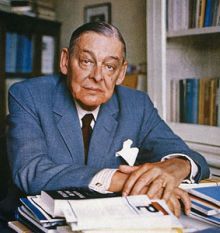 If there’s one thing that authoring a series of novels will teach you, it’s that you can’t wait for inspiration. But you can prompt it, give it little electric shocks that’ll keep it bubbling within you. Here are a few methods I use to do that.
If there’s one thing that authoring a series of novels will teach you, it’s that you can’t wait for inspiration. But you can prompt it, give it little electric shocks that’ll keep it bubbling within you. Here are a few methods I use to do that.I go to the places I’m writing about. I talk to people who might be similar to (or even the basis for) my characters. I read about them and their world. I engage in the same activities in which they specialize. But I also read about entirely different subjects – so long as they’re extremely well-written.
Some of these ideas sound self-evident. I’ve written a series of Palestinian crime novels, so it stands to reason that I’ve spent the last decade and a half in Gaza, Bethlehem, Nablus, Jerusalem, tasting and smelling and talking and looking. I even force myself to read the drivel that gets written about this place in journalism and nonfiction—occasionally I come across something good, but mainly it just gets me down. How many times can you listen to a mediocre pop song? Well, that’s how most Middle East journalism sounds in my ear.
For a novel I have coming out next year about Mozart, I learned to play the piano. I learned that I wasn’t much good at it, but I also saw inside the music in a way I couldn’t have done merely by listening.
Not so obvious, however, might be the wide reading. A number of writers I’ve met or read about say they don’t have time to read anything that isn’t directly related to their research. In other words, if I’m writing about Berlin, it’s goodbye to Raymond Chandler for the next 12 months.
Well, T.S. Eliot wrote that “Immature poets imitate; mature poets steal.” I can look back at my literary efforts as an undergraduate and see what imitation there was throughout all of it. Now I’m mature (I try to fight it; I work out; but I concede, I’m maturing…) and I’ve figured out how to steal.
What Eliot meant was that it takes a while, as a writer, to realize how to make things your own. That means going beyond the plagiaristic imitation of youth, which is humble and filled with homage, to the confident sense that whatever you see another writer do, you can do it better. Then when you read something good, it doesn’t appear in your work as the same thing—it spurs you to develop your own spin on the thought that’s provoked in you by what you’ve read.
Let me give you an example. I challenge any one of you to show me a contemporary writer who can build a character in a fuller, more convincing manner than Hilary Mantel, who won the Booker Prize last year for her masterful “Wolf Hall.” If anything, her 1992 classic “A place of Greater Safety,” a novel about the French Revolution, is even more amazing than her now-famous prize-winner.
“Greater Safety” tells the story of the entire revolution through the characters of Robespierre, Danton and Desmoulins. From their childhoods to (it’s a historical novel so I don’t have to give any spoiler alerts) their executions. Each of them is built slowly, and we see their character arc in a way that even they don’t—watch their idealism tainted with violence, until it turns on them. Because we take that journey with them, we care more deeply for them, even as they become murderous and unjust.
The “stealing” comes in whenever I see a point that Mantel uses to build that empathy. Robespierre, we learn, always carries a tiny copy of Rousseau in his pocket. Some time later it’s on his desk and Desmoulins notices it. Just one sentence. A couple hundred pages later someone quotes Rousseau against him and only his close friends understand that he’s entirely defeated. We know he’s a man who has bent principles for his friend Desmoulins, but he can’t desert them completely. It’s a choice between Desmoulins, whom he loves, or the book that he keeps close to his heart. Books always win in contests like that.
That doesn’t make me want to replicate the exact same thing in my next book – that’s what I might’ve tried when I was 19. Instead, I think of ways in which to send a signal to the reader. To plant an object that inspires a character, that takes them on the path on which we follow them in the novel. Until ultimately it underlies their collision with another character; makes compromise an impossible undermining of everything they believe about themselves.
That’s stealing, and it’s a good thing to do.
You can find such moments in the small factoids of history books, if you’re researching a period, or in nonfiction. It’s in poems, where a phrase about a frieze on an urn (“Thou still unravished bride of quietness”) will spark a thought about your memories of your own wedding or of a sexual exploit which you can use for a character in your book.
A writer whose obvious focus is character would be the most direct place to start. In other words, not the kind of ultra-bland snoozing that appears in the short fiction of The New Yorker, which always seems to be written as though it were designed to mimic a relatively dull person telling you a story in a cocktail party or at the counter of a bodega.
Choose something with sweep, like Mantel. Someone with an eye for a mordant detail, like Graham Greene in “The Honorary Consul.” Someone who shows you an entire, devastated culture through the eyes of one man, like Martin Cruz Smith’s investigator Arkady Renko.
A novel’s like a marathon. Stop and sit down at the side of the road and no amount of sprinting will get you to the finish line. You have to write every day and once you’re started you can’t stop. “Stealing” is a way of warming up for the long run.
Published on April 15, 2010 00:12
•
Tags:
a-place-of-greater-safety, berlin, bethlehem, booker-prize, crime-fiction, danton, desmoulins, gaza, graham-greene, hilary-mantel, historical-fiction, israel, jerusalem, martin-cruz-smith, middle-east, mozart, nablus, novels, palestine, raymond-chandler, robespierre, t-s-eliot, wolf-hall, writing
What do YOU think of me?
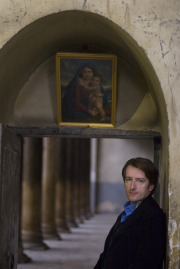 A friend of mine was lunching with a Scandinavian author a while back. At one point, the writer joked: “But that’s enough of me talking about myself. What do YOU think of me?”
A friend of mine was lunching with a Scandinavian author a while back. At one point, the writer joked: “But that’s enough of me talking about myself. What do YOU think of me?”Unlike that writer, I don’t care what you think of me. Don’t be offended – I don’t care what I think about other people, either. The more I write, the more I realize that I’m interested in myself alone.
That, I believe, is the necessary focus of all art – even if its final aim is to turn that inward look out toward the reader, the viewer, the listener. Art is flawed unless it focuses on the artist’s relationship with the world around him – through the narrator’s voice, in the case of a novelist.
I’ve been poring over this for a while, but it came to the fore last week after I spoke to an American group visiting Jerusalem. Mimi Schwartz, a writer of creative nonfiction, approached me after the event. She was kind enough to say that my long tenure here in Jerusalem – next month it’ll be 14 years – gave me a valuable perspective on the place. She suggested I write a memoir, in between my crime novels, because it would allow me “to bear witness.”
When I think of writing nonfiction about my experiences here, I tend to view the likely outcome as being David Sedaris-style essays telling amusing tales or a one-man-show in a similar vein. I don’t think that’s quite what Mimi had in mind. (She seemed like a lady of broad curiosity. I don’t think she’d be upset.)
I don’t want to “bear witness.” What I’ve witnessed in Jerusalem, Nablus, Tel Aviv, Gaza – none of it seems to have any value, frankly, unless I can tell you how I feel about it. Otherwise it’s just a litany of body parts and angry people and failed politics and disappointing lives.
I don’t mean to suggest that art has to be uplifting. But it has to open reality out, spread it wider than the small scope of journalism. That’s why much photography often seems to me to be the sneaky little charlatan of the arts world, because it’s so frequently done for the eye-catching cool beloved of ad-men or with an empty-eyed blandness.
By the same token, art may descend too far beyond the personal. The solipsistic crap that passes for contemporary art is the flipside of the banality of the mediocre photographer.
So all (bearable) art is, in a sense, bearing witness. Because it must be based firmly in something real. If it isn’t based in something real, then it doesn’t come as a reaction on the part of the artist to a real experience – and there’ll be something about it that tips the reader or viewer to the fact that the artist is lieing about or obscuring himself.
My series of four crime novels about Omar Yussef, a Palestinian detective, obviously have an element based in reality, because Omar is a way for me to unfold the scenes and emotions through which I’ve lived these past 14 years. But my next novel, which is to be about the death of Mozart, will just as surely be based in my experience of how people react to a loss and the dirty reality that’s likely to lie behind a sudden death.
To do my bit of bearing witness, I plan to stick to fiction. It’s closer to the real truth.
Published on May 06, 2010 01:23
•
Tags:
art, contemporary-art, creative-nonfiction, crime-fiction, david-sedaris, fiction, gaza, israel, jerusalem, journalism, middle-east, mimi-schwartz, mozart, nablus, nonfiction, omar-yussef, palestine, palestinian-detective, photography, tel-aviv
Signing up
 A book takes a long time to write, and then it takes a while to sell. And another while to sell in another country, and another after that. So a writer’s smile spreads across time.
A book takes a long time to write, and then it takes a while to sell. And another while to sell in another country, and another after that. So a writer’s smile spreads across time.My long-term grin widened this weekend, when I signed with my UK publisher for my next two books. Not only because Atlantic, the excellent publisher which has brought out all four of my Palestinian crime novels, bought my next books. But because Atlantic is launching a very exciting new imprint called Corvus.
The new imprint is headed by Nicolas and Anthony Cheetham, a father and son team who made Quercus such an important imprint. They’ve taken on my next book MOZART’S LAST ARIA, which is already completed and being edited in New York by the delightful Claire Wachtel at HarperCollins, and the novel I’m currently writing, which has the working title CARAVAGGIO ON FIRE. It’s about the Italian artist who, incidentally, is thought to have died 400 years ago on Sunday.
Writers will know what I mean when I say that signing the contract is a wonderful marker, but also similar to many other things in a writer’s life – it seems like a big milestone, but no one’s around to witness it except you, so you have to go inside yourself to enjoy the moment.
Read the rest of this post on my blog The Man of Twists and Turns.
Published on July 22, 2010 02:10
•
Tags:
after-sex, anthony-cheetham, atlantic-books, brooke-shields, caravaggio, caravaggio-on-fire, claire-wachtel, contracts, corvus, crime-fiction, greece, harpercollins, historical-fiction, mozart, mozart-s-last-aria, nicolas-cheetham, palestine, publicity, publishing, the-collaborator-of-bethlehem, thomas-m-kostigen, writing
Sondheim in the West Bank
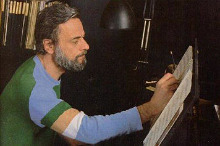 I’m in between drafts of a novel, so I thought I’d look for something to clear my head. Inspired by a BBC broadcast last week in honor of the 80th birthday of Broadway lyricist and composer Stephen Sondheim, I’ve been working on a musical version of my Palestinian crime novels. (Only in the shower, so far…)
I’m in between drafts of a novel, so I thought I’d look for something to clear my head. Inspired by a BBC broadcast last week in honor of the 80th birthday of Broadway lyricist and composer Stephen Sondheim, I’ve been working on a musical version of my Palestinian crime novels. (Only in the shower, so far…)I’m thinking of updating the Romeo and Juliet story and setting it in Bethlehem. In tribute to the Sondheim-Bernstein classic “West Side Story,” it’ll be called “West Bank Story,” of course, and will be the tale of the rivalry between two gangs, one Fatah and the other Hamas. I’ve already scored a couple of the numbers (“Aisha, I just met the mother of a girl named Aisha” and “I feel pretty, Oh so pretty, I feel pretty and witty and…I’d best not talk about it because the Hamas guys won’t like it.”)
I'm proud to say I have accrued quite a track record at developing disastrous failed concepts for musicals. I’ve been driving my wife crazy with these ideas for years. This is inspired by the large number of distinguished writers who’ve penned opera librettos and discovered that writer-turned-lyricists have a special graveyard all their own in Hell. Vikram Seth, Russell Hoban and, most recently, Ian McEwan have turned their hand to it. None of them seem to be rivals to Lorenzo da Ponte, Mozart’s greatest librettist, no matter how hard they’ve tried.
Which is why I’ve always thought it’s a better idea to write a failed musical. After all, did you ever see a musical that didn’t seem like it would’ve been better left in the librettist’s bottom draw – or in this case, his blog? Believe me, I know: I saw “Falsettos” on Broadway.
I’ve particularly enjoyed working on failed musicals which fall into the category first popularized by the Buddy Holly biosical (biography-musical, new word all my own) “Buddy” and recently by Green Day’s “American Idiot,” in which music people already love is jammed into a ridiculous storyline. (Ridiculous storylines are de rigeur in the Middle East, so maybe the Palestinian musical isn’t so silly…)
That brought me the following list of future Tony Award Winners:
BLOOD ON THE CHANTILLY LACE: A detective discovers that Buddy Holly and Richie Valens died when their plane came down only because gangsters wanted to rub out the third, largely unremembered passenger, The Big Bopper.
FUGUE! The life of J.S. Bach, fun-loving father of 20 and writer of the scariest piece of music ever (Toccata and Fugure in D minor for organ).
I’M A BELIEVER: The songs of The Monkees performed in Gregorian plainchant by monks.
Read the rest of this post on my blog The Man of Twists and Turns.
Published on August 04, 2010 23:04
•
Tags:
bbc, broadway, buddy-holly, elvis-presley, falsettos, fatah, fbi, frost-nixon, green-day, hamas, hank-williams, ian-mcewan, j-s-bach, leonard-bernstein, lorenzo-da-ponte, middle-east, mozart, palestine, palestinian, romeo-and-juliet, russell-hoban, stephen-sondheim, the-big-bopper, the-monkees, tony-awards, vikram-seth, west-side-story, writing
Going historical
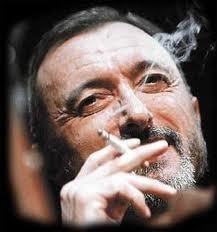 Writing of the disdain expressed for genre novels by critics, Raymond Chandler said that there were just as many bad “literary novels” of the type favored by critics as there were bad genre stories – except that the bad literary novels didn’t get published. In other words, there’s nothing inherent in so-called genre fiction that makes it lesser than “literary” fiction.
Writing of the disdain expressed for genre novels by critics, Raymond Chandler said that there were just as many bad “literary novels” of the type favored by critics as there were bad genre stories – except that the bad literary novels didn’t get published. In other words, there’s nothing inherent in so-called genre fiction that makes it lesser than “literary” fiction.Chandler knew what he was talking about. His great noir novels, such as “The Big Sleep” and “The Long Goodbye,” are must-reads for anyone who wants to know how to build a sentence and a voice, how to create an image that won’t fade a few pages on, how to make people want to read it all over again. His contemporaries in the “literary” field who were more favored by the highbrow critics of his time are these days consigned to the dustbin of college literature courses. (If you don’t believe me, tell me when was the last time you reached for a volume by Upton Sinclair or Pearl Buck?)
But historical fiction is back. Ever since “The Name of the Rose” (published in English in 1983), the genre has accrued greater legitimacy. Last year’s Booker Prize went to a historical novel (“Wolf Hall”) and this year’s looks likely to go to “The Thousand Autumns of Jacob de Zoet” (do an internet search for its author David Mitchell and “genius,” and you’ll see why.)
Even poor old Alexandre Dumas and the swashbuckler have been returned from their long-ago burial under a mound of critical invective. In the last decade or so, Dumas has found his way into the title of a novel by Arturo Perez-Reverte, one of the most notable historical novelists of our time. Perez-Reverte can buckle a swash in the form of his Dumas-derived Captain Alatriste series, but he also has enough modern perversity for one of his novels to have been adapted for the screen by Roman Polanski. (That novel, “The Club Dumas,” even included a reference to Eco, “the professor from Bologna,” in a nod to his role in legitimizing the genre.)
Read the rest of this post on my blog The Man of Twists and Turns.
Published on September 01, 2010 00:06
•
Tags:
alan-furst, alexandre-dumas, arturo-perez-reverte, barbara-nadel, barry-unsworth, caleb-carr, captain-alatriste, caravaggio, crime-fiction, david-mitchell, hilary-mantel, historical-fiction, j-sydney-jones, literary-fiction, mozart, mozart-s-last-aria, new-york, omar-yussef, palestinian, pearl-buck, raymond-chandler, sacred-hunger, the-big-sleep, the-club-dumas, the-long-goodbye, the-name-of-the-rose, umberto-eco, upton-sinclair, west-bank, wolf-hall
Ikea and the Crime Writer
 There are many theories as to why Scandinavian crime writers prosper in the bestseller lists. But I know why it is. Ikea.
There are many theories as to why Scandinavian crime writers prosper in the bestseller lists. But I know why it is. Ikea.I just bought a new set of Ikea shelves for my office. I’ll get into exactly how that has altered the configuration of my workspace, but at this point let me just note that it makes my writing room seem a thousand times more orderly, less cluttered. As any feng shui expert would tell you, a disorganized room will yield fractured thoughts and fill the mind of its occupier with distraction. For a writer who needs to focus on his manuscript and whose manuscript requires a consistent vision, that’s a bad thing.
So these shelves, produced by a company based in Sweden, have no doubt created the clean, neat spaces Scandinavian crime writers like Henning Mankell and Jo Nesbo need to write their clean, neat stories.
I was in need of a little neatening in my office, because my research had started to create clutter. There were piles of books on Mozart, music and the Austrian Empire related to my forthcoming historical crime novel MOZART’S LAST ARIA. Then new mountains of books and documents for CARAVAGGIO ON FIRE, my novel about the Italian artist which will be out in a year and a half.
But that’s not all. For my Mozart book, I learned the piano. So suddenly there’s a piano in my office. For Caravaggio, I’ve been learning to paint with oils, so there’s an easel and painting implements and canvases jostling for space with my guitars and bass guitars and amplifiers (those aren’t research; it’s a hobby).
Add to that the large numbers of foreign editions of my books I’m delighted to receive when I’m published in Indonesia and Romania and Iceland, but which I’m unable to give to friends due to the fact that I only know one Icelander, my Romanian landlord already read the book, and the only Indonesian I know is my editor and of course he has already read the book, too.
Read the rest of this post on my blog The Man of Twists and Turns.
Published on December 09, 2010 01:07
•
Tags:
caravaggio, caravaggio-on-fire, crime-fiction, feng-shui, henning-mankell, iceland, ikea, indonesia, italy, jo-nesbo, mozart, mozart-s-last-aria, romania, sweden, the-guardian, writers-rooms, writing
Into costume: My book promo Pt. 1
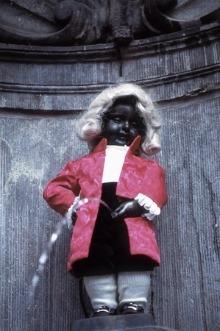 My new book MOZART’S LAST ARIA will be out in the UK in May. Naturally this means a revamp for my website (coming soon) and a new promo video (coming about the same time) to be posted to Youtube. You know, all the stuff writers actually get into the business of writing in order to do. That, and cashing the massive cheques, of course. Oh, and the groupies who throw their panties at you at book-store readings. And the drugs.
My new book MOZART’S LAST ARIA will be out in the UK in May. Naturally this means a revamp for my website (coming soon) and a new promo video (coming about the same time) to be posted to Youtube. You know, all the stuff writers actually get into the business of writing in order to do. That, and cashing the massive cheques, of course. Oh, and the groupies who throw their panties at you at book-store readings. And the drugs.Anyhow, that’s enough digression, even for a blog post. So back to the point: All my previous video clips – which can be viewed on my website – have necessitated no more than a jaunt to Nablus, Gaza or Bethlehem, where I’ve been filmed chatting about the latest adventures of my Palestinian sleuth Omar Yussef. This time, I have to recreate the world of Vienna, 1791, for my historical mystery.
For the novel, creating the atmosphere, the details and the locations of Vienna during Mozart’s time brought me to amass a few shelf-loads of research, to learn piano so I could play some Mozart, and to travel in Austria and Central Europe.
The video places a few more demands. This week I’ve been getting into costume.
I found a theatrical costume shop on a tiny alley in the oldest part of West Jerusalem just off Jaffa Road. Run by a delightful, bustling French lady named Francoise Coriat, the compact store is packed up and down (hanging from the ceiling too) with pirate suits, musketeer costumes, and every other period-wear you’d ever need. Mostly Francoise hires them out to theaters.
She kitted me out with two big flouncy dresses for the two female musicians who’ll feature in the video and three frock-coat suits for the men. And a Little Mozart costume for my three year old son.
Then it was time to figure out exactly how to film it. My videographer pal David Blumenfeld produces new equipment each year when it’s time for me to get a video done. This time he has a little slide to mount on top of his tripod; put the camera (these things are so small these days) on it and you can make a dolly shot that looks positively cinematic. His lighting is increasingly creative too. So I was sure it’d look great.
I worked up a script last week, aiming to make the video seem more like a movie trailer than the more documentary/journalistic style of most of my previous promos. Why? Well, first because MOZART’S LAST ARIA isn’t based on a topic you’re used to seeing featured in the news – whereas Palestinians, unfortunately for them, are very much in the news. Morever, it seems to me people are used to reading novels which are like movies – almost entirely visual, very little of the internal narrative of novels written a century ago – so perhaps book promotional videos ought to be that way too. This is how we think of stories these days.
True, said my friend Matthew Kalman, a journalist based here in Jerusalem who’s also a filmmaker. But beware, he said, that you don’t expect amateur actors to…act.
Read the rest of this post on my blog The Man of Twists and Turns.
Published on December 30, 2010 02:03
•
Tags:
austria, bethlehem, book-promos, book-videos, crime-fiction, gaza, historical-fiction, jerusalem, mozart, mozart-s-last-aria, my-books, nablus, omar-yussef, palestine, palestinians, videos, youtube-com
Enter character the Black Swan and Bruce Springsteen way
 A writer needs to enter the characters in his novel. I’ve talked about this with other writers, but also found it useful to discuss it with artists from other fields. Two movies I saw in the last week, “Black Swan” and “The Promise: The Making of Darkness on the Edge of Town,” illustrate just why it’s so important.
A writer needs to enter the characters in his novel. I’ve talked about this with other writers, but also found it useful to discuss it with artists from other fields. Two movies I saw in the last week, “Black Swan” and “The Promise: The Making of Darkness on the Edge of Town,” illustrate just why it’s so important.“Black Swan” revolves around the dilemma facing Natalie Portman as a ballerina cast as both the White Swan and the Black Swan in “Swan Lake.” The White Swan is no problem for her – she’s virginal and precise. But the seductive Black Swan is beyond her – she can’t loosen up and seems to be going crazy in her subconscious determination not to do so. Her director tries to drive her beyond the mere dance steps necessary for the role. The cliché would be to say he wants her to inhabit the role. But actually he wants the role to inhabit her.
That’s what makes the movie so compelling to watch as an artist. Because that’s the way it has to be. A writer has to be invaded and driven by his character. The other way around is too shallow, too distanced.
For a dancer like Portman’s character, there’s only one way to make the movements of your body convey emotion, and that’s to experience the emotion. To dance the Black Swan, you have to be able to step forward and say, “I’m the bloody Black Swan, dammit,” and for it to be true.
It’s the same for a writer. In the moment of writing about a particular character, all the writer’s reactions must come directly from the connection between the writer and the emotion at the heart of what he’s writing. If I ever experience a weak connection or a break, I can tell immediately: the words don’t come; or the most obvious character reaction suggests itself and instantly feels false.
I’ve developed techniques for entering into the character. They involve meditation and “breathing” through the heart, rather than the head. It opens you directly to the necessary emotion.
Read the rest of this post on my blog The Man of Twists and Turns.
Published on January 27, 2011 01:17
•
Tags:
adam-raised-a-cain, ballet, black-swan, bruce-springsteen, character, mozart, mozart-s-last-aria, natalie-portman, swan-lake, white-swan, writing



